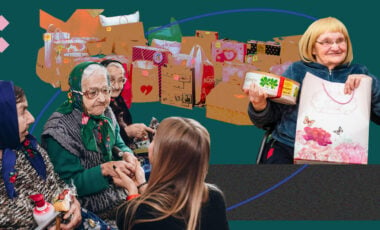Eco-solutions: Sweden to aid Ukraine in adopting European waste management standards

The Swedish government has launched a new technical aid project for Ukraine to bolster household garbage management. The initiative aims to enhance the country's waste management system to align with European standards.
The Ministry of Environmental Protection and Natural Resources of Ukraine reported that.
What is the problem?
"Sweden's help is significant for Ukraine, especially now, in war conditions, when we are fighting for our future. This future also includes a clean environment and ecological security. Therefore, among our priorities is to strengthen and develop the national policy in these matters," the Minister of Defense of the Environment and Natural Resources of Ukraine, Svitlana Hrynchuk, said.
What is the solution?
The Swedish government has initiated a new technical assistance program for Ukraine titled "Enhancing Household Waste Management for 2024-2027."
"Sweden's experience and expertise in the field of waste management are difficult to overestimate, and they are precious for our country on the way to the EU and the practical results of the initiated reform," Hrynchuk emphasized.
How does it work?
Swedish experts analyzed the situation with waste in Ukraine and identified areas of cooperation. The Swedish International Development Cooperation Agency, SIDA, approved the program in July this year.
The project consists of ten components that will be carried out both nationally and regionally. Specifically, the following objectives will be pursued:
- introducing novel strategies for setting tariffs in waste management;
- implementing the "polluter pays" principle;
- adopting European standards in waste management planning.
- In addition, support for regions in developing regional and local waste management plans is provided.
According to Hrynchuk, the interest of investors to work in Ukraine will depend on the quality of the development of such plans:
"It is important for us to have detailed high-quality regional and local waste management plans. They will become the proposal for which we can find investors," the minister said.
Critical areas of the program include:
- processing of biological waste. Preparation of guidelines taking into account the experience of European countries;
- introduction of extended producer responsibility in Ukraine;
- implementation of a systematic approach to reducing the volume of gases generated at landfills. Experts estimate that 4-5% of the world's gas volumes are generated precisely at Ukrainian landfills. This indicator can be halved if appropriate equipment is installed at 400-500 of the largest Ukrainian landfills;
- organization of assistance in the form of certain equipment from Swedish municipalities to Ukrainian ones, with the possibility of involving other European countries, etc.
The program also provides for implementing four pilot projects based on the cluster principle, exchanging experience between Ukrainian and Swedish municipalities, and preparing investment cases to attract funding.
For reference:
As Rubryka reported, there has been an increase in news coverage regarding plans to construct plants that convert waste into energy, potentially for use in heating homes. The proposed technology is expected to be implemented in the Kyiv, Odesa, and Kharkiv regions. These facilities will incinerate household waste, producing heat and electricity. The methods used, such as gasification, pyrolysis, and plasma processes, are based on the same waste-to-energy concept. While some local administrations are still researching this solution, others have begun allocating funds and constructing the necessary infrastructure.
Numerous other methods are more efficient and economical for managing waste. The example of EU countries supports this notion.

Eco-solutions: World Cleaning Day unites 377,000 Ukrainians, collecting over 68,000 tons of garbage

EU Maritime Safety Agency sends equipment to clean up polluted waters in Odesa region

Repair Ukraine: How volunteers "clean up after russia" in Chernihiv region



















































